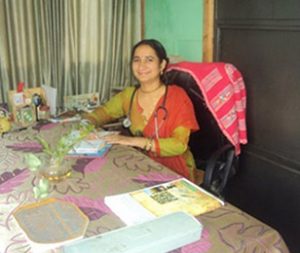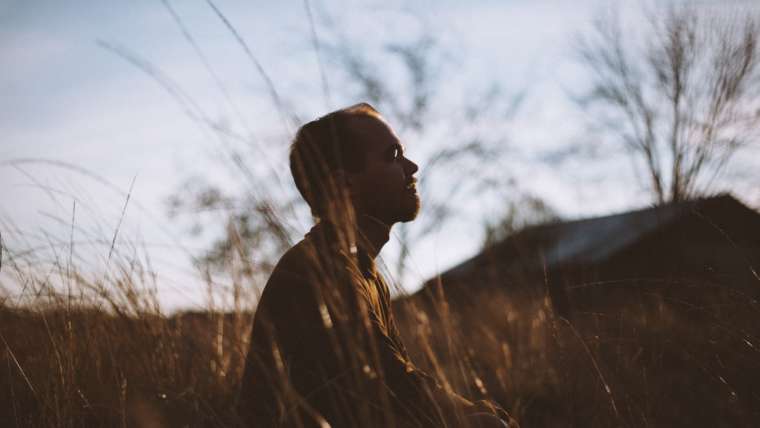CORONAVIRUS CONTROL THROUGH AYURVEDA
The epidemic of coronavirus disease started in December 2019 in Wuhan, Capital of Hubei province China. It was caused by SARS-CoV -2.
It is believed to have originated from another animal and subsequently spread between people. The outbreak was declared a Public Health Emergency of International Concern (PHEIC) by the World Health Organisation (WHO).
Vector, Spread and Incubation
The natural wildlife reservoir of SARS-CoV-2 and intermediate host that transmitted it to humans has not been confirmed. Research suggests that it has Bat origins. SARS-CoV-2 is 96% identical at the whole genome level to a bat coronavirus. In February 2020, researchers form South China Agricultural University announced that there is 99% similarity in genome sequences between viruses found in pangolins and human patients. This suggests that the animal maybe an intermediary host for the virus.
Coronavirus can spread after droplets are expelled out in air after an infected individual sneezes or coughs. The virus can then land on any metallic, glass or plastic surface like door handles, tables etc. where it can survive for up to nine days.
The time from exposure to the virus and onset of symptoms is estimated as 2 to 14 days.
Signs and Symptoms
Those infected may be asymptomatic or have mild to severe symptoms like fever, cough, shortness of breath and diarrhoea. Upper Respiratory symptoms like sneezing, runny nose and sore throat can also be present.
Severe infection results in pneumonia, acute respiratory distress syndrome (ARDS – inflammation in lungs, shortness of breath, rapid breathing and bluish skin), Kidney failure and even death.
Risk Factors
People whose immune system is weak are more at risk. This may be cancer patients undergoing treatment, those taking immunosuppressant drugs to treat an autoimmune disease, organ transplant recipients who are taking immunosuppressant medicines to stop the rejection by the body etc. People with chronic diseases like diabetes, lung diseases and heart conditions are also at risk. The very old and the very young are also prone to the infection.
Management and Control
There is no specific anti-viral medicine for coronavirus. The management is mainly symptomatic according to the features. Hand washing and wearing mask is recommended to prevent spread.
Ayurvedic view on Coronavirus
Ayurveda speaks about epidemics in the context of janapadodhwans in Charak samhita, which means destruction of a population due to contaminated air, land and water and perversion of time.
There is also description about communicable diseases ie. sankramak vyadhi in Sushruta samhita, examples of which are fever, skin diseases, conjunctivitis and tuberculosis.
The situation of janpadodhwans can be very much related to the epidemics due to coronavirus due to the vitiation of air, land and water. The droplets of the sneezing from an infected person are contaminating these air, land and water.
Also, fever is one of the features of the disease which has been listed as communicable disease. Communicable diseases may occur due to inhaling contaminated air, contacting diseased person, sharing clothes and beddings and eating together.
Prevention and management as per Ayurveda
Prevention of Coronavirus can be possible if
- we avoid interaction with any of the vitiated air, water or land
- Our immunity is strong.
Once the disease has occurred, it should be treated with the following types of treatment-
- Daivavyapashraya chikitsa (Treating with prayers and worship)
- Yuktivyapashraya chikitsa (Treating with intellectual use of medicines)
- Satvavajaya chikitsa (Treating by controlling the mind)
Prevention-
To avoid interaction with vitiated air, one can wear masks. This will prevent the inhalation of the virus along with the air. We should boil water and drink. By land, we can mean any surface, it may be the outside ground, the floor in our houses, door handles, furnitures etc. We can make a decoction of Neem, mustard, Himalayan salt etc. and wipe the surfaces with this decoction. Gomutra (cow urine) can also be diluted in water and used to wipe the surfaces.
If our immunity is strong enough, even on exposure to vitiated air, water and land, we shall not fall sick. Immunity is referred to as vyadhikshamatva in Ayurveda. Oja in our body represents the vyadhikshamatva. Oja in the body can be enhanced by
- Use of Rasayana–
- Aushadhi rasayan
- Achara rasayan
- Ajasrik rasayan
- Following dinacharya and ritucharya
Rasayana is that by which we get the optimum quality and quantity of rasa dhatu(the first tissue formed after digestion), after which we get good quality of the succeeding dhatus. Rasayana also slows down the ageing process and destroys disease.
The aushadhi rasayanas are herbal medicines that are rejuvenating. Rasayanas that can be used in case of Coronavirus can be Chyavanprash avaleha and agastya haritaki. These will enhance oja and also combat some of the main respiratory features of coronavirus.
Achara rasayana is following the correct conduct in life. This includes moral, ethical and benevolent conduct. Truth, non-violence, being vegetarian, cleanliness, devotion, compassion, refraining from anger, not indulging in alcohol, performing the sexual act with the lawful spouse and at the correct time and place, keeping calm, being peaceful, patience, austerity, respect, mercy etc are parts of achara rasayan. One who follows Achara rasayan gets the benefits of Rasayana drugs without actually consuming them.
Ajasrik rasayana involves using healthy food. Some of the healthy foods can bestow the benefits of rasayana if used correctly on a daily basis. Cow milk and cow ghee are examples of such foods.
Dinacharya is following the proper daily regimen every day. It includes a series of things to do from when we get up in the morning. One should get up daily in Bramha muhurta (before sunrise), and after proper elimination, should resort to Abhyangam(anointing the body with oil), padabhyangam (application of oil on feet), karnapoorana(instilling oil in the ears), nasyam( nasal drops), brushing the teeth, gandoosha(holding medicated oil or decoction in the mouth), kavala(gargling), vyayama(exercise), yogasana, snana(bathing) etc. Then one should offer prayers and pay respects to the elders and teachers and set out for work. Following the correct dinacharya increases the oja in our body and makes us strong.
Similar are the effects of Ritucharya, seasonal regimen. One should resort to different types of diet and regimen in different seasons. By following ritucharya oja is increased and the chances of being afflicted with diseases decreases.
Treatment-
Once someone has already come into contact with coronavirus, then we have to follow the three modes of treatment ie Daivavyapashraya, yuktivyapashraya and satvavajaya.
For daivavyapashraya chikitsa (Treating with prayers and worship) the following can be done-
- Chanting Om Namah Shivaya
- Reciting of Vishnusahasranama
- Chanting the Mahamrityunjaya mantra
- Worshipping the cow and using panchagavya for various purposes
- Doing Havana
- Meditation
Yuktivyapashraya chikittsa (Treating with intellectual use of medicines) can be done by taking the following medicines-
- Agastya haritaki 5g twice daily with warm water
- Sanshamani vati 500mg twicedaily
- Shadang paniya decoctionfor drinking often
- Trikatu 2g twice daily with warm water
- Tulsi leaves decoction for drinking often
Yuktivyapashraya chikitsa for Coronavirus can also be done on the line of treatment for krimi (pathogens) in Ayurveda. This includes the following
- Apakarshana – This is the removal of disease producing krimi out of the body by using therapeutic procedures like vamana , virechana and shirovirechana or by manually removing them by manual extraction. Vamana , virechan and shirovirechan should be done only after assuring that the patient is strong enough.
- Prakriti Vighata – Prakriti vighata is creating an unfavourable condition for the growth of krimi. This can be cleaning of surfaces, washing hands etc. It also includes the use of the above stated drugs which hamper the further growth of pathogens.
- Nidana parivarjana – This is abstaining from the cause of any disease. It is a very efficient means of managing any disease and first line of treatment. For nidana parivarjana, it is very important to know about knowledge of invasion, factors responsible for the disease and about spread of the disease. Wearing masks, drinking hot water, washing hands several times, getting out of the affected area etc. can be considered as nidana parivarjana.
Satvavajaya Chikitsa (Treating by controlling the mind) includes meditation, yogasana and pranayama. These help in keeping calm. One should not force himself to do all these, but try doing as much as can be done with ease. The mind and the body are closely related, the affliction of one affects the other. The illness of the body definitely has an adverse effect on the mind. By keeping the mind calm, we are going to enhance the self-healing mechanism of the body.
By following the principles of Ayurveda, which are directly derived from the Vedas, one is sure to remain healthy and if by chance he encounters a disease, he is sure to attain health once again. For example, if we resort to doing namaskara instead of a hand shake, we are not going to come into direct contact with anyone who may be afflicted by a contagious disease, By cremating the dead bodies, we are actually going to destroy any pathogens that may be present in the body, If we follow dinacahrya and ritu charya, we are not likely to fall sick.
Therefore, it can be concluded that the problem of Coronavirus can be solved by following the principles of Ayurveda.
This article was written by Dr. Mukta Tripathi
Shreenivas Ayurveda Center Varanasi
on behalf of “The Light fo Varanasi” .

DR. (MRS). MUKTA TRIPATHI
BAMS, BHU Varanasi
MD (Alternative medicine), Indian Board of Alternative Medicine, Kolkata CGO, HIS, Mumbai
Expertise : Panchakarma, Aroma Therapy, Gynecology, Dosha Parichay, Education And Teaching, Vasti








